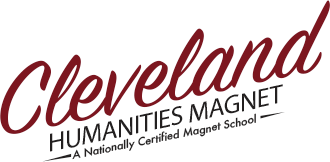10th Grade Literature
Unit 1: Study of Virtue in The Ancient Greek Culture
Specific Topics
- The Trojan War and The Story of Achilles
- The Emergence of The Age of Reason with The Tale of Odysseus
- The Shift from Tyranny to Democracy with The Story of Antigone
- The Ever-Changing Role of the Gods in The Ancient Greek Civilization and Humankind’s Relationship with the Deities
- Experience The Oral Tradition of the ancient world with “The Story of The Golden Apple”
Essential Questions
- How does Aristotle present the blueprint for all literature in the Western World?
- What is The Story of The Golden Apple? What does it have to do with “The Iliad”?
- What is Achilles’ dilemma as he comes to understand his role in the Trojan War?
- How and why does the story of “The Odyssey” present a different idea of Virtue than “The Iliad”?
Student Understandings
- how Aristotle maintained order in the civilization through theater
- the relationship between mortals and immortals in time of Achilles
- how and why this relationship changes with story of Odysseus
- the role of women in society and the striking political shift with the continuation of the Oedipal tale in “Antigone”
Readings & Materials
- “Poetics” by Aristotle (Translated under the Editorship of W.D. Ross)
- “The Iliad” by Homer (Translated by Stanley Lombardo)
- “The Odyssey” by Homer (Translated by Richmond Lattimore)
- “Antigone” by Sophocles (Translated by Paul Roache)
Unit 2: The Rise of Christianity
Specific Topics
- Corruption and excessive lifestyle of the Roman Empire during the reign of Nero
- The Old Testament and the introduction of a monotheistic Divine Being
- Creation, Adam and Eve, Cain and Abel, Noah and Moses
- The Gospel of Matthew to compare and contrast the Divine Being of the Old Testament with that of the New Testament
Essential Questions
- What was the “vicious cycle” in which the Romans were living as the empire was spiraling into self-destruction?
- What steps were taken in the Bible to allow for a smooth transition from Poly to Mono Theism?
- Where are there striking differences between the God of the Old and New Testaments?
- How and why does Christianity arise as a reaction to the lifestyle of the Romans?
Student Understandings
- Students will understand the emergence of Christianity as a challenge of Roman corruption with Judaism as the inspiration.
Readings & Materials
- “Dinner With Trimalchio” from The Satyricon by Patronius
- “The Book of Genesis” from King James Bible
- “The Book of Exodus” from King James Bible
- “The Gospel According to Saint Matthew” from The King James Bible
- “The Aeneid” by Virgil
Unit 3: The Bloody History of the Catholic Church
Specific Topics
- Emerging role and influence of women in society
- Tension between Faith and Science
- The Abuse of Power in both religious and secular realms
- The influence of The Church in affairs of state
- Commentary regarding the challenges emerging against the corruption in the Catholic Church.
Essential Questions
- What does Nicholas represent in contrast to The Carpenter?
- What does the ending of The Miller’s Tale tell us about the social and cultural transitions of Europe?
- What social commentary is Chaucer making about age, sex, class & wealth in The Wife of Bath’s Tale?
- What are we to learn about academia and faith through the adventures of Doctor Faustus?
- Why is King Henry the Fifth considered one of Shakespeare’s masterpieces?
- Why is Henry to be admired? What are his favorable characteristics? How and why is The Dauphin considered Henry’s foil?
- What role does the Catholic Church play in the war against France as waged by King Henry that culminates with The Battle at Agincourt?
- What is resolved as a result of this conflict?
Student Understandings
- the rationale for establishing a balance between faith and secular knowledge.
- why the victory of the English against the French is credited to the “Grace of God,” rather than the advent of the longbow.
Readings & Materials
- “The Miller’s Tale” from “The Canterbury Tales” by Geoffrey Chaucer
- “The Tragical History of the Life and Death of Doctor Faustus” By Christopher Marlowe
- “King Henry The Fifth” by William Shakespeare
- Excerpts from “Paradise Lost” by John Milton
Unit 4: The Romantics & The Victorians
Specific Topics
- Cautionary tale of what happens when the scientific revolution is taken too far.
- The “God Complex” of Faustus taken a step further with Victor Frankenstein.
- The Romanticism of Rousseau seen in Shelley as well as the poets of the era.
- Mindset of the Romantics attempting to warn regarding the Industrial Revolution
- Mindset of the Victorians looking at the benefits as well as the detriments of the Urban locale.
- Class relations studied in depth.
Essential Questions
- How has the Industrial Revolution affected our relationship with the natural world?
- How is our perception of God changed?
- How has the Scientific Revolution changed our pursuit of the possible?
- How does the literature of the time reflect the thinking of philosophers?
- What social role and responsibility is (or should be) taken on by the bourgeois class?
- How is the Proletariat treated by other classes?
Student Understandings
- the conflict of “innocence versus experience,” and what both mindsets have to offer human beings.
- why certain spiritual issues ought not be controlled by humankind.
- the impracticality of “moving backwards” in reaction to the Industrial Revolution.
- the tension established between the classes within the urban location.
- the capacity of the society at large to be either beautifully benevolent or hideously cruel to a member based solely on appearance.
- the class system of post-revolutionary France as a case study of what was going on in Europe during the 1800s.
- the connection between the Art Pieces of the era as representative of the literary characters.
Readings & Materials
- Selected Poems from:
- William Blake
- Oscar Wilde
- Thomas Hardy
- “Frankenstein” by Mary Shelley
- William Wordsworth
- A.E. Housman
- Excerpts from “Les Miserables” by Victor Hugo


